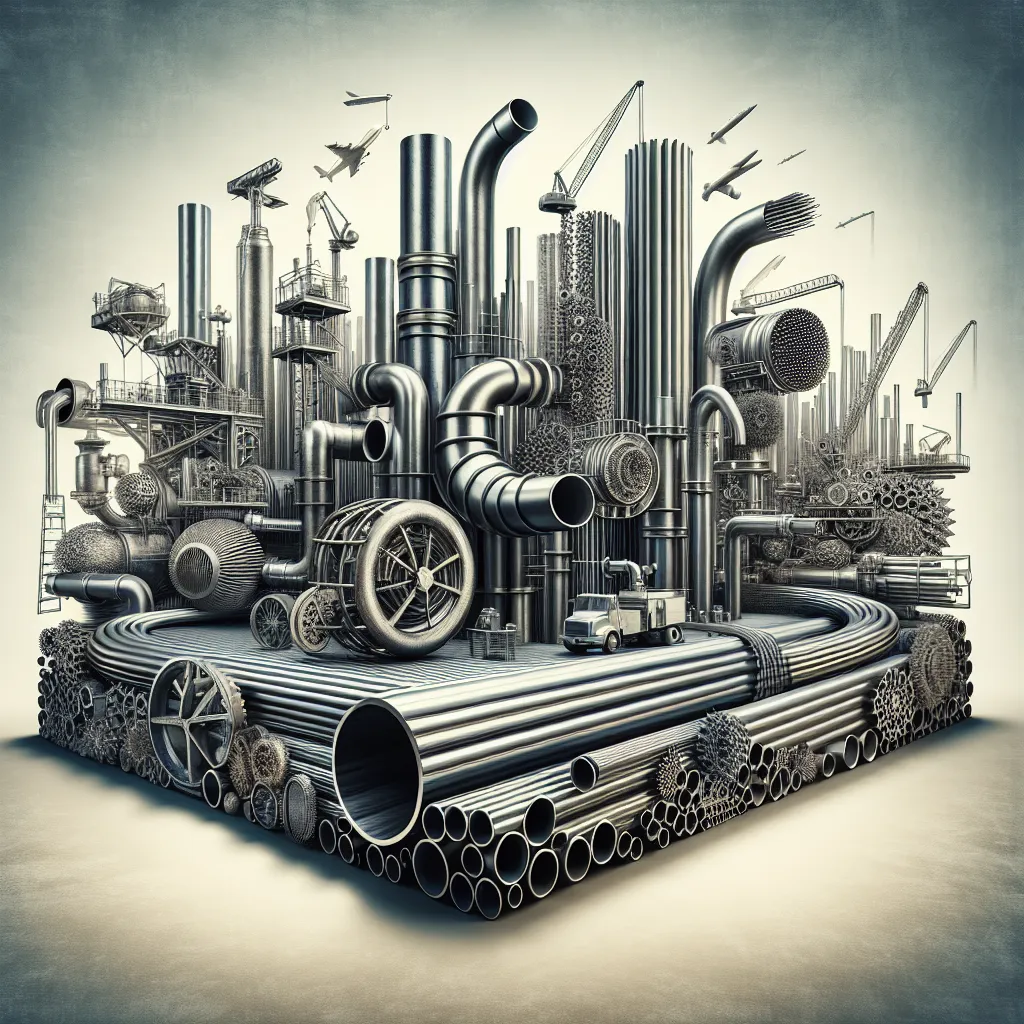Exploring the Versatility of Steel Pipes
Exploring the Versatility of Steel Pipes
Introduction
Steel pipes are one of the most widely used materials in various industries, from construction to manufacturing. Their durability, strength, and versatility make them a popular choice for a wide range of applications. In this article, we will delve deeper into the world of steel pipes, exploring their characteristics, types, manufacturing process, and their significance in different sectors.
Characteristics of Steel Pipes
Steel pipes are known for their exceptional strength and durability. They can withstand high pressure and extreme temperatures, making them ideal for applications that require transporting fluids or gases over long distances. Steel pipes are resistant to corrosion, which is crucial for industries dealing with corrosive substances. Additionally, steel pipes have a high load-bearing capacity, making them suitable for structural applications.
Types of Steel Pipes
There are various types of steel pipes available, each designed to meet specific requirements. Some common types include:
1. Seamless Steel Pipes
Seamless steel pipes are manufactured without any seams or joints. They are formed by piercing a solid billet of steel and then extruding it to the desired shape and size. This manufacturing process ensures uniformity and strength, making seamless steel pipes suitable for high-pressure applications such as oil and gas pipelines.
2. Welded Steel Pipes
Welded steel pipes are made by joining two ends of steel strips or plates together using various welding techniques. These pipes are cost-effective and commonly used in water distribution systems, plumbing, and structural applications. Welded steel pipes can be further classified into longitudinal or helical welded pipes, depending on the method used for joining.
3. Galvanized Steel Pipes
Galvanized steel pipes are coated with a layer of zinc to enhance their corrosion resistance. This protective coating prevents rusting and extends the lifespan of the pipes. Galvanized steel pipes are often used in outdoor applications, such as fencing, handrails, and water supply systems.
4. Stainless Steel Pipes
Stainless steel pipes are highly resistant to corrosion and staining, making them suitable for applications where hygiene and aesthetics are crucial. They are commonly used in the food and beverage industry, pharmaceuticals, and chemical processing plants. Stainless steel pipes come in various grades, each offering different levels of corrosion resistance and temperature tolerance.
Manufacturing Process of Steel Pipes
The manufacturing process of steel pipes involves several stages:
1. Steel Production
The first step is the production of steel. It typically involves melting raw iron in a blast furnace and adding various alloying elements to achieve the desired properties. The molten steel is then cast into billets or slabs.

2. Pipe Formation
Depending on the type of steel pipe, different techniques are employed for forming the pipes. Seamless pipes are created by piercing a solid billet using a mandrel, while welded pipes are formed by joining steel strips or plates together.
3. Heat Treatment
After the pipes are formed, they undergo heat treatment processes such as annealing, normalizing, or quenching and tempering. These processes help enhance the strength and durability of the pipes.
4. Finishing
The final stage involves finishing the steel pipes. They are cleaned, inspected, and may undergo additional treatments such as galvanization or coating for specific applications.
Applications of Steel Pipes
Steel pipes find extensive use in numerous industries and applications, including:
1. Oil and Gas Industry
Steel pipes are crucial for the transportation of oil and gas from extraction sites to refineries and distribution centers. The high strength and corrosion resistance of steel pipes ensure the safe and efficient delivery of these valuable resources.
2. Construction
Steel pipes are widely used in construction for structural purposes. They provide the necessary support and stability for buildings, bridges, and other infrastructure projects. Additionally, steel pipes are used in underground utility systems such as water and sewage pipelines.
3. Manufacturing
The manufacturing industry relies on steel pipes for various applications, including the transportation of raw materials, chemicals, and gases within factories. Steel pipes are also used in the fabrication of machinery, equipment, and automotive parts.
4. Plumbing
In plumbing systems, steel pipes are commonly used for water supply and drainage. Their durability and resistance to corrosion ensure long-lasting and reliable plumbing networks.
5. Infrastructure and Utilities
Steel pipes are essential for the construction and maintenance of infrastructure projects such as bridges, tunnels, and highways. They are also used in utility systems like water treatment plants and power generation facilities.
Conclusion
Steel pipes have revolutionized various industries with their strength, durability, and versatility. From transporting oil and gas to supporting infrastructure projects, steel pipes play a crucial role in modern society. Understanding the different types, manufacturing processes, and applications of steel pipes helps us appreciate their significance and the impact they have on our everyday lives.
